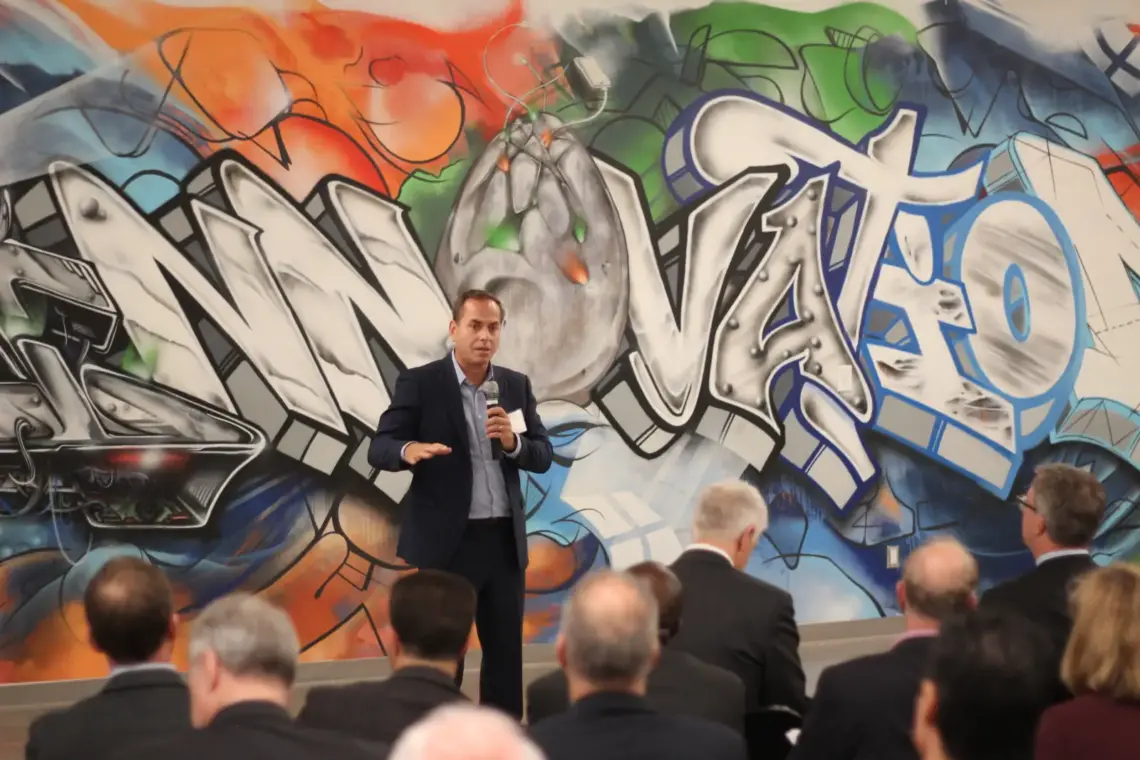
By Rosa Saba
David Ritonja, a well-known leader in Ottawa’s tech community who has spent years helping the sector grow and diversify, has landed a new job at Nokia that will see him take on new global responsibilities from the company’s Kanata base.
Ritonja says the skills he developed at OCRI, Invest Ottawa and other organizations will be instrumental in his new role as vice-president of market development in the Finnish telecom firm’s fixed networks division.
Ritonja joined Alcatel-Lucent, which was acquired by Nokia in 2016, some 18 years ago. However, his career started as an air force engineer after studying at the Royal Military College of Canada.
He went on to spend two years with a software startup before joining defence giant Lockheed Martin to work on mobile technology as the company diversified.
“I started getting my feet wet into the whole networking side of the house,” explains Ritonja, adding that this was “during the crazy days of dot-com.”
Knowing Lockheed Martin likely wouldn’t go as far in the networking space as other network-focused companies, he started looking around for opportunities and found one when Alcatel offered him a position running research and development for the company’s DSL business.
It turned out to be the right move.
“As time went by, the business that we had for that type of product set in North America kept growing in status,” says Ritonja. A few years later, he took over leadership in Ottawa and has been there ever since. As technology continued to evolve, the company began working with bigger customers across North America.
“My responsibility grew beyond just the DSL business to effectively all our access technologies in North America,” says Ritonja. “It became very, very interesting.”
EVOLVING MARKETS
Even throughout the dot-com downturn, Ritonja says business was stable. He says the company culture at Alcatel, and now Nokia, suits him and has allowed him to stay with his family in Ottawa despite taking on increased responsibility.
“The bosses that I’ve had have actually given me the opportunity and the autonomy to grow and do what I want,” he says. “There’s a lot of flexibility to grow into other roles in a large company without actually having to move.”
That includes plenty of opportunities for development and growth, including in his new market development position.
“I was at that point in my career where I was actually getting a bit restless,” admits Ritonja. “Maybe my boss sensed it. It was actually a timing that worked well on both sides.”
In his new role, Ritonja will be helping Nokia expand and diversify globally, identifying new markets and key sectors.
“One of the strengths that I … feel I brought to the table is truly understanding business development and understanding where markets are evolving,” says Ritonja. “It’s going quite well.”
Ritonja is no stranger to the importance of diversification, not just for a company but for the tech sector itself. He joined the board of OCRI – the predecessor of Invest Ottawa – approximately eight years ago, and says the change in the tech sector post-boom
took him by surprise.
“It was an immense eye opener for me to realize how our city had diversified already,” he says. “There’s an entrepreneurial nature in our community.”
His belief in the importance of tech’s contribution to economic development in Ottawa led him to help facilitate the first-ever federal development grant to the city, which was used to encourage students to develop apps.
The next step was for OCRI to transition into an organization with more of a focus: Invest Ottawa.
“I think that was a good step for the city,” he says of the initiative. “What Invest Ottawa really allowed was a refocusing of what we needed to do.”
With Bruce Lazenby as Invest Ottawa’s first CEO – a “startup kind of guy,” Ritonja says – the Nokia executive served more than four years as the economic development organization’s co-chair.
During that period, he says Invest Ottawa put itself on the map and helped build connections in Ottawa tech between downtown and Kanata North.
“I believe that relationship has maintained itself,” he says. “I feel quite strongly about the progress that we’ve made and proud of it.”
Looking back, Ritonja says he has seen Ottawa’s tech sector not only diversify, but also come together.
“We weren’t as unified as we needed to be,” he says. “And I honestly believe as time has gone on, a lot of those barriers have come down.”
Though Ritonja’s new role at Nokia has him thinking globally, he plans to stay connected in Ottawa as he uses the leadership and networking skills he gained here abroad.
“I have just incredibly fond memories of … contributing and feeling like I made a difference,” he says.
